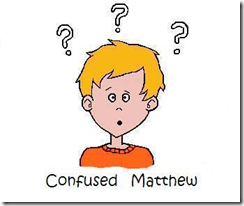I am nonplussed about the shifting definition of nonplussed.
/In the last 24 hours, I've read two professionally published pieces of writing - a collection of essays by David Sedaris and a news article - where the word "nonplussed" was used incorrectly.
Nonplussed means to be surprised and confused to such a degree that a person is uncertain about how to react.
When you are nonplussed, you are startled. Befuddled. Shocked. Discombobulated.
Not unaffected. Not calm. Not bemused. Despite how so many people - including experienced writers and their editors - might think.
Websters offers an alternate definition of nonplussed (not bothered, surprised, or impressed by something) but also indicates that this definition is chiefly used in the United States.
Then it adds:
NOTE: The use of nonplussed to mean "unimpressed" is an Americanism that has become increasingly common in recent decades and now appears frequently in published writing. It apparently arose from confusion over the meaning of nonplussed in ambiguous contexts, and it continues to be widely regarded as an error.
In other words, Americans have screwed up the use of this word so often that we must acknowledge that there is alternate, albeit ridiculous definition used only in the stupid Americans.
I understand that language is constantly evolving, but are we really going to entirely reverse the definition of this word? Changes in the meaning and usage of words is a normal part of an evolving language, but to shift the opposite meaning seems a little ridiculous to me.
I feel the same about the phrase "Begs the question." While it's so often used to imply that something someone has said or done has prompted a question or wonderment (His inability to hit the baseball begs the question: Does he belong in the major leagues?), it's actually a phrase that defines a certain type of circular logic.
For example, "The death penalty is wrong because killing people is immoral" is an example of begging the question because it argues that the death penalty is wrong because the death penalty is wrong.
As a former debate champion and lover of logic, I am a huge fan of the proper use of "begs the question."
Despite my strong feelings, I fear that the true meaning of "begs the question" is a lost cause. It's far more likely to hear someone use the phrase improperly these days, and I suspect that in another decade or two, the proper definition will be lost forever.
I'm willing to cede ground on "begs the question." Grudgingly.
But nonplussed? That is a hill I'm willing to die on. A fight that must be fought. A battle I'm willing to wage, and you should, too. Shifting definitions is a perfectly acceptable result of an evolving and ever-changing language, but reversing a definition entirely is something I cannot abide.
I am nonplussed about the shifting definition of nonplussed. I am outraged. Defiant. Activated and ready to fight.
I'm sure you find this as important and pressing an issue as I do.



